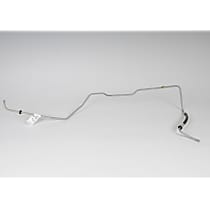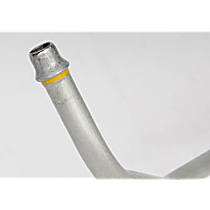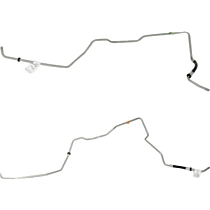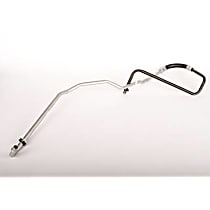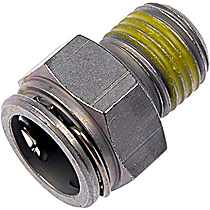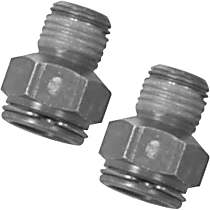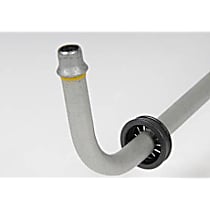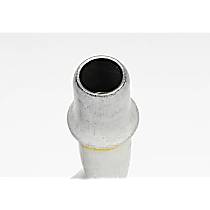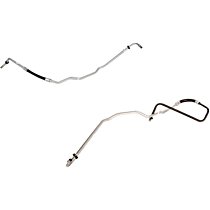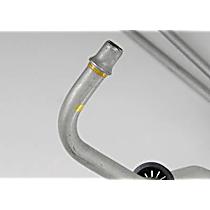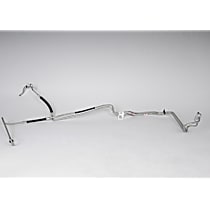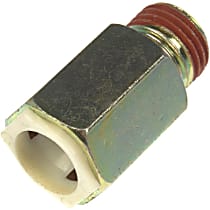{
"lazyNodes": false,
"abFitnotesFlag": false,
"abCrawlReviews": false,
"productOptionsCookie": false,
"orderDelayFlag": false,
"skipSessionCookie": false,
"covidMessage": false,
"fullTitleCookie": false,
"nrLoggerCookie": false,
"checkoutReviewCookie": false,
"productOptionSeqCookie": false,
"maintenanceFlag": false,
"bufferETACookie": false,
"multiShippingDiscountFlag": false,
"newFitmentFlag": false,
"surveyOptInFlag": false,
"crossSellFlag": false,
"skuMappingFlag": false,
"paySplitCookie": false,
"callDisableFlag": false,
"zipPaymentFlag": "u",
"hassleFreeReturn": false,
"lifetimeReplacement": false,
"cpn_off": false
}Transmission Oil Lines
Shop Catalog
![]() WARNING: This product can expose you to chemical which is known to the State of California to cause cancer and birth defects or other reproductive harm. For more information go to www.P65Warnings.ca.gov.
WARNING: This product can expose you to chemical which is known to the State of California to cause cancer and birth defects or other reproductive harm. For more information go to www.P65Warnings.ca.gov.
![]() WARNING: This product can expose you to chemical which is known to the State of California to cause cancer and birth defects or other reproductive harm. For more information go to www.P65Warnings.ca.gov.
WARNING: This product can expose you to chemical which is known to the State of California to cause cancer and birth defects or other reproductive harm. For more information go to www.P65Warnings.ca.gov.
![]() WARNING: This product can expose you to chemical which is known to the State of California to cause cancer and birth defects or other reproductive harm. For more information go to www.P65Warnings.ca.gov.
WARNING: This product can expose you to chemical which is known to the State of California to cause cancer and birth defects or other reproductive harm. For more information go to www.P65Warnings.ca.gov.
![]() WARNING: This product can expose you to chemical which is known to the State of California to cause cancer and birth defects or other reproductive harm. For more information go to www.P65Warnings.ca.gov.
WARNING: This product can expose you to chemical which is known to the State of California to cause cancer and birth defects or other reproductive harm. For more information go to www.P65Warnings.ca.gov.
![]() WARNING: This product can expose you to chemicals including Phthalates, which is known to the State of California to cause cancer and birth defects or other reproductive harm. For more information go to www.P65Warnings.ca.gov.
WARNING: This product can expose you to chemicals including Phthalates, which is known to the State of California to cause cancer and birth defects or other reproductive harm. For more information go to www.P65Warnings.ca.gov.
![]() WARNING: This product can expose you to chemicals including Phthalates, which is known to the State of California to cause cancer and birth defects or other reproductive harm. For more information go to www.P65Warnings.ca.gov.
WARNING: This product can expose you to chemicals including Phthalates, which is known to the State of California to cause cancer and birth defects or other reproductive harm. For more information go to www.P65Warnings.ca.gov.
![]() WARNING: This product can expose you to chemical which is known to the State of California to cause cancer and birth defects or other reproductive harm. For more information go to www.P65Warnings.ca.gov.
WARNING: This product can expose you to chemical which is known to the State of California to cause cancer and birth defects or other reproductive harm. For more information go to www.P65Warnings.ca.gov.
![]() WARNING: This product can expose you to chemicals including Phthalates, which is known to the State of California to cause cancer and birth defects or other reproductive harm. For more information go to www.P65Warnings.ca.gov.
WARNING: This product can expose you to chemicals including Phthalates, which is known to the State of California to cause cancer and birth defects or other reproductive harm. For more information go to www.P65Warnings.ca.gov.
![]() WARNING: This product can expose you to chemical which is known to the State of California to cause cancer and birth defects or other reproductive harm. For more information go to www.P65Warnings.ca.gov.
WARNING: This product can expose you to chemical which is known to the State of California to cause cancer and birth defects or other reproductive harm. For more information go to www.P65Warnings.ca.gov.
![]() WARNING: This product can expose you to chemical which is known to the State of California to cause cancer and birth defects or other reproductive harm. For more information go to www.P65Warnings.ca.gov.
WARNING: This product can expose you to chemical which is known to the State of California to cause cancer and birth defects or other reproductive harm. For more information go to www.P65Warnings.ca.gov.
![]() WARNING: This product can expose you to chemical which is known to the State of California to cause cancer and birth defects or other reproductive harm. For more information go to www.P65Warnings.ca.gov.
WARNING: This product can expose you to chemical which is known to the State of California to cause cancer and birth defects or other reproductive harm. For more information go to www.P65Warnings.ca.gov.
![]() WARNING: This product can expose you to chemical which is known to the State of California to cause cancer and birth defects or other reproductive harm. For more information go to www.P65Warnings.ca.gov.
WARNING: This product can expose you to chemical which is known to the State of California to cause cancer and birth defects or other reproductive harm. For more information go to www.P65Warnings.ca.gov.
![]() WARNING: This product can expose you to chemical which is known to the State of California to cause cancer and birth defects or other reproductive harm. For more information go to www.P65Warnings.ca.gov.
WARNING: This product can expose you to chemical which is known to the State of California to cause cancer and birth defects or other reproductive harm. For more information go to www.P65Warnings.ca.gov.
![]() WARNING: This product can expose you to chemical which is known to the State of California to cause cancer and birth defects or other reproductive harm. For more information go to www.P65Warnings.ca.gov.
WARNING: This product can expose you to chemical which is known to the State of California to cause cancer and birth defects or other reproductive harm. For more information go to www.P65Warnings.ca.gov.
![]() WARNING: This product can expose you to chemical which is known to the State of California to cause cancer and birth defects or other reproductive harm. For more information go to www.P65Warnings.ca.gov.
WARNING: This product can expose you to chemical which is known to the State of California to cause cancer and birth defects or other reproductive harm. For more information go to www.P65Warnings.ca.gov.
Top Rated Products
Popular Products
Shopping for Transmission Oil Line

Summary:
- The transmission oil line is responsible for transporting the hot transmission fluid from the transmission to the radiator to cool it down.
- The transmission oil line is designed to last the life of your vehicle, but it may fail early due to extreme heat and daily wear.
- To determine if it needs to be replaced, look for signs like fluid leaks, transmission overheating or poor performance, and grinding noise coming from the vehicle’s transmission system.
- The four types of a transmission oil line are metal, rubber, nylon braided, and steel braided.
- An aftermarket transmission oil line replacement usually costs around $10 up to $120.
Manual and automatic transmission have their own pros and cons. Manual transmission is easier to maintain since it is less complex than automatic transmission; offers more control to the driver; and is generally more affordable compared to its automatic counterpart. On the other hand, an automatic transmission system can provide driving comfort and better fuel efficiency as you gain more gears.
However, whichever type of transmission your vehicle has, the constant shifting of gears can inflict damage to crucial transmission components in the long run. One of these parts is the transmission oil line.
What is a Transmission Oil Line?
The role of the transmission oil line is to deliver hot fluid from your transmission to the radiator to cool it off. Once the transmission fluid is cooled, it is pumped back to your transmission system to help lower the temperature.
The transmission oil line is usually composed of a system of rubber hoses and metal or composite aluminum tubes that can handle the high temperatures of the transmission fluid. It helps ensure that the transmission and its components won’t break down because of excessive heat.
Types of Transmission Oil Lines
To get a better understanding of transmission oil lines, make sure to learn more about its four types:
Metal transmission oil line
This type of transmission oil line is pre-bent with fittings held on by a flare at each end of the line. Since it is made from metal, it typically has superior durability than other types. However, it may rust or corrode over time if constantly exposed to harmful contaminants. Metal transmission oil lines may be easy to install depending on your vehicle’s make and model.
Rubber transmission oil line
This is the most affordable and readily available transmission oil line. It is also suitable for adding in an external cooler or for a temporary solution to your faulty metal transmission line.
Nylon braided transmission oil line
This type of transmission oil line is a rubber line encased in a protective nylon cover. It is more durable than a rubber transmission line, but it’s also more expensive. The nylon covering helps prevent rips and tearing, which is a normal occurrence in daily driving.
Steel braided transmission oil line
Similar to nylon braided transmission oil lines, a steel braided transmission oil line is just a rubber hose covered by a protective steel cover. It is more durable than nylon and tends to cost more. This type of transmission line is more suitable for high-performance applications because of their superb durability.
How Long Does a Transmission Oil Cooler Line Last?
The transmission oil line is designed to last the life of the vehicle. However, due to its exposure to extreme heat, the rubber or composite aluminum lines in the transmission system can wear out over time.
Harmful contaminants can also enter your transmission and cause deterioration. If you don’t want this problem to result in the premature failure of your transmission parts, make sure you replace it when you notice signs of damage.
Signs that You Need to Replace Your Transmission Cooler Lines
Failure to fix a damaged transmission oil line is a slippery slope. It can cause bigger transmission problems for you in the future, which will likely occur sooner rather than later. If you don’t want to deal with such issues, be sure to replace your transmission oil line once you notice the following problems:
Trouble shifting gears
If you are having difficulty shifting gears or your gears are slipping and responding very slowly, the transmission might be affected by high temperatures. This may happen due to a damaged transmission oil line. Since transmission fluid is not properly delivered from the transmission system to the radiator, lowering the heat becomes impossible. This then affects the performance of your vehicle’s transmission components.
Transmission is overheating
Without a proper supply of cool transmission fluid, the transmission system can overheat. The high temperatures can also burn the remaining fluid, which produces an unpleasant burning smell. As a result, some of the transmission components may wear out and can break down anytime. To avoid this, it’s best to have your faulty transmission lines replaced.
Grinding noise from the transmission
If you have faulty transmission oil lines, you may also hear a grinding or crunching noise from your vehicle’s transmission whenever you shift your gears. It’s another sign that your transmission fluid level is low and that there is probably a leak in your transmission system.
Transmission fluid leaks
The transmission fluid that flows through your transmission oil lines may leak if the hoses are damaged. If you notice red fluid on the hoses and gaskets under your hood, it’s likely that your transmission fluid is leaking.
You may check the connection from the transmission lines to the radiator since this is where most leaks happen. Looking for any signs of fluid under your vehicle is also a good idea. However, remember that if the coolant has been burned or contaminated, it won’t be red anymore. Pay attention to where the leak is coming from as well.
Visible physical damage
A visual inspection will allow you to see if there is any damage to your transmission oil line. The presence of bulges, cracks, and holes are the most obvious signs that you need to replace your cooler lines. If you continue driving with such faulty components instead of changing them as soon as possible, your transmission system will perform poorly and overheat.
How Much is an Aftermarket Transmission Oil Line?
The price of an aftermarket transmission oil line replacement is usually around $10 to $120. You can purchase this transmission component as a single part or in sets of two. It usually comes with a product warranty to ensure consumer protection.
